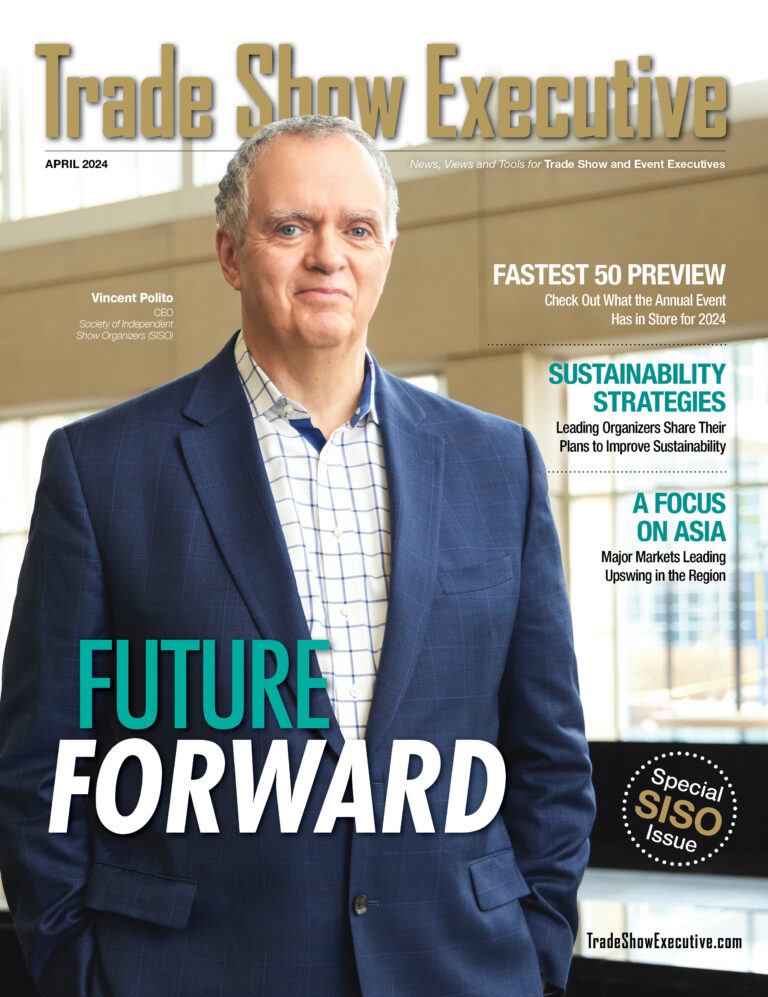 DALLAS – In Chinese, the word for crisis also bears the meaning of opportunity; this sentiment is usually shared when trying to show that a crisis can also be a possibility. A new insights paper, Freeman Future Forecast: How Live Events Are Evolving, discusses the opportunities ahead for the industry to reimagine live events and create a better experience for everyone, from attendees to sponsors to show organizers.
DALLAS – In Chinese, the word for crisis also bears the meaning of opportunity; this sentiment is usually shared when trying to show that a crisis can also be a possibility. A new insights paper, Freeman Future Forecast: How Live Events Are Evolving, discusses the opportunities ahead for the industry to reimagine live events and create a better experience for everyone, from attendees to sponsors to show organizers.
A global pandemic has forced the industry to reinvent itself and discover new ways to produce events. Most adaptations are digital, using technology to connect global audiences that used to meet in person. When live events return, that approach will remain an important and integral part of any event.
“The in-person platform will return, but in a different and more meaningful way,” said Freeman CEO Bob Priest-Heck. “Ultimately, we will see a shift away from the idea of live as a moment in time and space to live as a year-long, multi-platform conversation. This gives us the opportunity to deliver greater value and deeper connections than ever before.”
While the use of digital continues to grow and evolve, Freeman’s research shows that 92% of virtual event attendees “are frustrated,” so clearly not all events can effectively make the jump to online. The pandemic has shown that while digital events have an important place, especially when people can’t meet face-to-face, they can’t provide the same experience, nor can they be measured against the same metrics as a face-to-face event.
The Freeman report points out that rather than trying to make digital and face-to-face do “essentially the same function,” planners should instead focus on understanding and utilizing the full capabilities and strengths of each format to ensure the event is useful for everyone.
Related. Freeman Launches Go LIVE Together
On the Horizon: Integrated Experiences
The Freeman report states that despite the maelstrom surrounding COVID-19 and its impact on the industry, what hasn’t changed is that events do matter. The report predicts that future events will be smaller and more targeted, sponsors and exhibitors will need new methods to garner visibility, and attendees will have their own unique challenges and needs. To build the bridge that connects these different needs will be the job of integrated experiences.
That’s why, instead of thinking about hybrid events, the focus should be on creating integrated experiences. A digital event can’t deliver a mirror experience of an in-person event; a new medium requires a new production approach and content strategy. An integrated experience is a multi-layered engagement strategy that enables participants to engage on their terms combining “the high touch, high value of in-person events with strategically scheduled virtual offerings, year-round streaming, and a tight content marketing strategy that supplements it all.”
At present, virtual experiences are the only game in town, and they will carry the ball, helping companies and associations reach new audiences, target new geographies, and test new vertical markets. And they work. Freeman’s benchmarks show that, on average, online event audiences are 500% larger than their physical manifestation.
When the pandemic comes under control and the world starts to normalize, innovation lies ahead. Event organizers will have to change their expectations, recalibrate success metrics, and exhibit a willingness to experiment so that when live events do return, they will have a solid understanding of what works, what doesn’t, and what they want to try when meeting in person is once again an option.
Reach Bob Priest-Heck at (214) 445-1000 or bph@freemanco.com.











